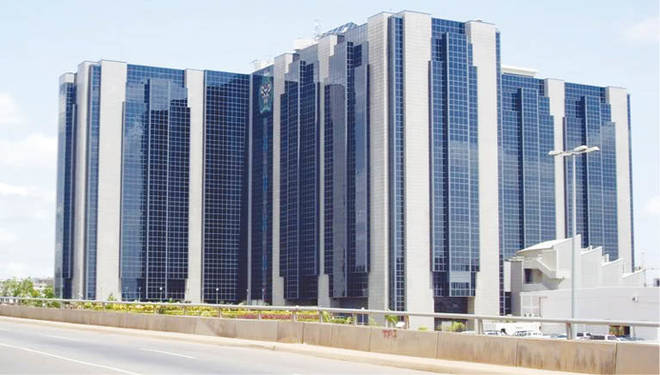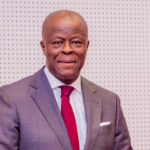Financial inclusion is the provision of a broad range of high quality financial products such as savings, credit, insurance, and pension that are relevant, appropriate and affordable for the entire adult population, especially the low income segment.
The benefits of financial inclusion for the poor are extremely significant. Financial inclusion is not just necessary for growth, but to avoid financial collapses within families The EFInA Access to financial services in Nigeria 2016 survey showed that 40.1 million adult, representing 41.6 per cent of the adult
population were financially excluded. Only 36.9 million adults were banked (had an account with a deposit money bank), representing 38.3 per cent of the adult population.
EFInA notes that full participation in the financial sector, especially for the unbanked and the under banked, also benefits the national economy by infusing funds from the informal sector into the formal financial system.
The EFInA 2016 survey further revealed that23.9million adults save at home only. If 50 per cent of these people were to save N1,000 per month with a bank, then more than N143 billion could be incorporated
into the formal financial sector every year.
It is in realisation of this potentials that the Central Bank of Nigeria, Deposit Money Banks, Nigeria Interbank Settlement System, Licensed mobile money operators and shared agents came together under SANEF ( Shared Agent Network Expansion Facility) to accelerate the on boarding of 40 million low income and un-served Nigerians into the financial system.
The initiative also aim to increase financial access point from the current 50,000 to 500,000 by 2020 and deepening access to mobile and digital financial products and services such as savings account, micro
loans, insurance and pensions by Nigerians.
Why the SANEF initiative is important?
According to the global findex database – Measuring Financial Inclusion Around the World – Policy Research Paper, access to financial services enables the poorest and most vulnerable in society to step out of poverty and reduces the inequality in society Financial inclusion not only helps individuals and families, but collectively it develops entire communities and can help drive economic growth It also enables people to have the ability and tools to manage and save their money as well as empowering people with the skills and knowledge to make the right financial decisions The report also indicates that Participation within the financial system leads to all kinds of individual benefits, including:
- Ability to start and grow a business, which gives people an opportunity through micro-financing schemes for example to better long term prospects
- Being able to pay for an education for children, which in turn enables a new generation of educated and informed individuals
- The ability to handle uncertainties that require ad hoc and unexpected payments or ‘financial shocks’
What the banks are implementing
As at the time of this report, over 70,000 new financial access point have been created. So far, with a target of 150,000 by the end of the year. Nine operators are currently part to SANEF with N4.5 billion
already disbursed.
SANEF is also committed to scaling up the current 33 million bank verification number (BVN) to 70 million by 2020.
Already, 10,000 remote BVN devices ordered by NIBSS are being deployed to banks, MMO, and super agents with a target of enrolling new unique BVNs of 10 million in 2018, 15 million in 2019 and 15 million in 2020.
NIBSS will make available remote capture devices to agents across Nigeria, particularly rural areas with priority for the North East, North central and North West. NIBSS will pay N100 to agents for every
unique BVN enrolled.
A member of the Technical Committee of the Bankers Committee on SANEF initiative, Bolaji Lawal, said the agents would be deployed at all the 774 local councils, experience centres of telecommunications companies and markets.
He said: “a target of developing between 100,000 and 150,000 agent networks in the third and fourth quarter of 2018, has been set and there are training and certification on going and a plan to rev up shortly, the financial literacy and customer education programmes, which will run across print and electronic media.”
Also speaking on the initiative, the Chief Executive Officer of Diamond Bank, Uzoma Dozie said: “The identity issue is probably a problem of inadequacy or integrity of that identity platform. The banking sector says 35million unique identity exists which is grossly inadequate compared to the total population.”
“The banks have come together under SANEF and the whole idea of SANEF is to rule out the agency banking platform so that anybody can do servicing for all the banks.
Commenting on the prospect of achieving the target, he said: “These things can change tomorrow. If today, government comes out and say any transaction above 100,000 have to be electronic, you will see what will happen. Immediately people will start having biometric notification, people will start opening accounts. If you drop it down to 50,000, you will see people start rushing in and when you call it 10,000. You would have captured a lot.
“The reason why people have account in the UK is that you can’t be carrying cash, it is too expensive, only drug dealers do that or people who want to evade tax. The only reason for carry cash is because you want to reduce your tax liability; you are doing things that you cannot declare.”
Lawal summed it up by saying: “That the strategy, embodied in the scheme, is sure to meet the target and mostly, bring about a significant change in the financial inclusion landscape, adoption of digital banking and reduction in the number of the unbanked populace.
“It would reduce the barriers to lending to individuals and small businesses, integrate the formal and informal economy, with enormous positive social impact.




